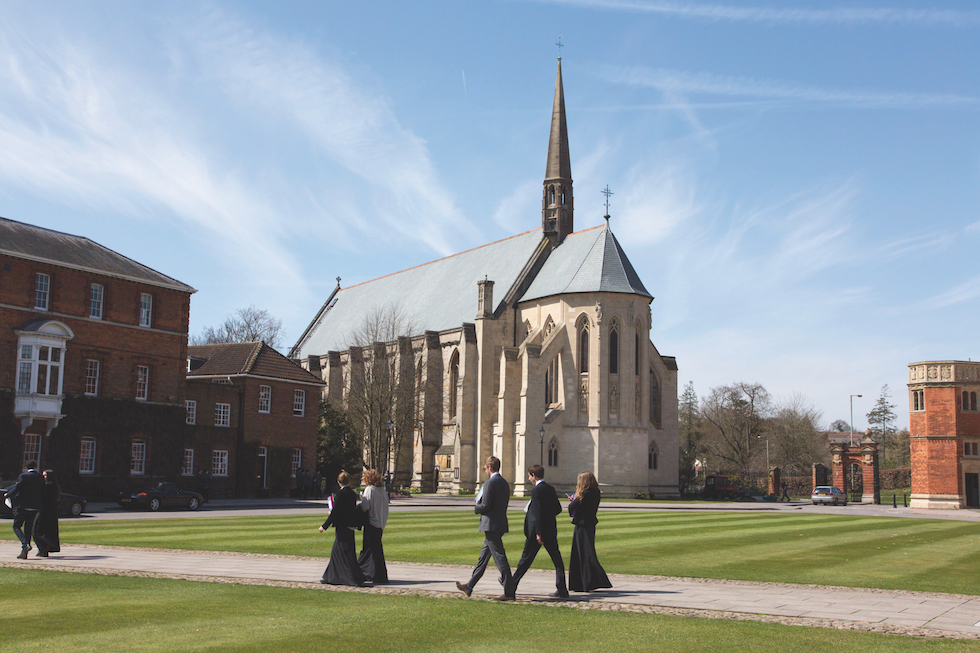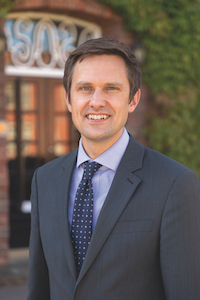Fundamental Bursaries
By
4 years ago

Bursaries are fundamental to the ethos of a modern school, says Simon Lerwill, foundation director for Marlborough College

Theo, the recipient of one of our bursaries at Marlborough College, who left the school a few years ago, told me with conviction one day, ‘I can say with certainty that going to Marlborough is one of the most enriching and formative experiences of my life so far.’ His experience and his story is repeated thousands of times in hundreds of independent schools across the country.
The scale of bursary and scholarship support has grown dramatically over the last decade. Last year ISC schools helped 150,000 pupils – 30 per cent of all pupils in the independent sector – with their fees, with the support totalling £900,000. This has grown from less than 100,000 pupils (or 20 per cent of all pupils) receiving financial support in the year 2000. There has also been a shift away from traditional scholarships with schools now giving twice as many means-tested bursaries compared to non-means tested. At the same time, the number of schools fundraising for bursaries has also increased in recent years and there has been a big shift away from fundraising for buildings, say, towards fundraising for these bursaries.
There are many good reasons for these trends. Bursaries ensure that talented young people from any background can benefit from the exceptional education that independent schools provide. There are literally thousands of stories out there, like Theo’s, of the difference a bursary has made. According to the Royal National Children’s SpringBoard Foundation,
a charity that places hundreds of bursary pupils in boarding schools, 92 per cent of the beneficiaries claimed that the bursary had changed their life for the better. Such opportunities also have a positive impact on the aspirations and lives of their families, friends and communities. The Royal SpringBoard Foundation estimate that on average 20 individuals are positively impacted by just one bursary place.
Bursaries are also one way in which schools can increase the diversity of their pupil bodies. This is arguably more important now than ever. We know that a more diverse community, which is more representative of the society that pupils will go on to live and work in, will therefore prepare all pupils better for life after school. There is also evidence that schools with a strong social purpose, of which bursaries are part, attract and retain their staff better because people are increasingly keen to work in organisations with a clear social mission.
Marlborough College has had such a mission for a long time. It was founded in 1843 to provide an exceptional education for young people from families of less fortunate means. Originally, this was to educate the sons of clergymen who could not afford an independent education, as well as orphaned children. As a result, it has always had a strong social purpose and an ethos of caring for others. Today there is still a strong sense of service amongst our pupils, with a large emphasis on volunteering in the local community.
Building on this ethos, the college has a strong outreach and partnership programme, working with several local state schools, which the pupils also take part in. This includes one of the longest running state-independent schools partnerships in the UK with Swindon Academy. In 2016, Swindon Academy introduced the Grammar Stream, an innovative new scheme by which selected students at the school follow a grammar school-style curriculum taught by specialist teachers, including from Marlborough College. The college also has a partnership with Darüşşafaka, a school in Turkey that educates children who have lost one, or both, parents, and the Young Guru Academy, which runs a science mentoring programme with local primary schools.
The college has provided bursaries and scholarships for many years and there are now 100 pupils in the school on a means-tested bursary. However, we are now embarking on a new strategy to dramatically increase the number of bursaries we can offer, in part, by launching a major new fundraising campaign in the next few years. We are committed to building a diverse, socially-minded and forward-looking institution that provides life-changing opportunities for young people from any background. We want to ensure young people from all walks of life can study here and we strongly believe that the whole school will benefit from increasing diversity, in all its forms.
Arguably, there has never been a more important time for independent schools to ensure they are as accessible as possible. There are now more young people than ever before who need support. As a result, independent schools will need to increase their funding for bursaries even further, helping to transform more lives like Theo’s, whilst also transforming their own school communities.

This article was originally published in the 2020/21 issue of Scholarships & Bursaries



